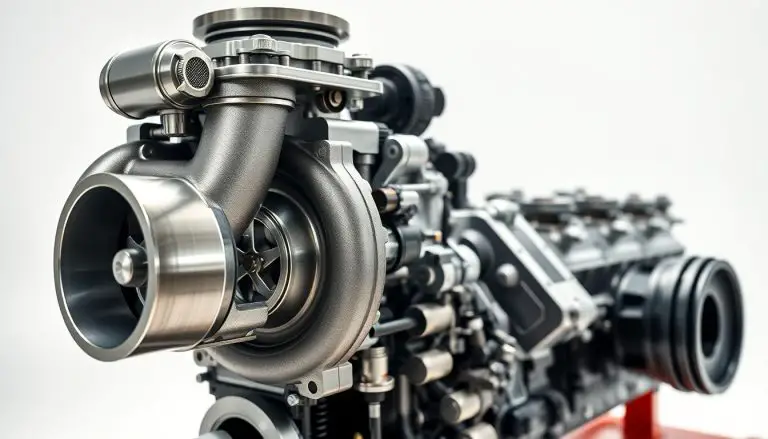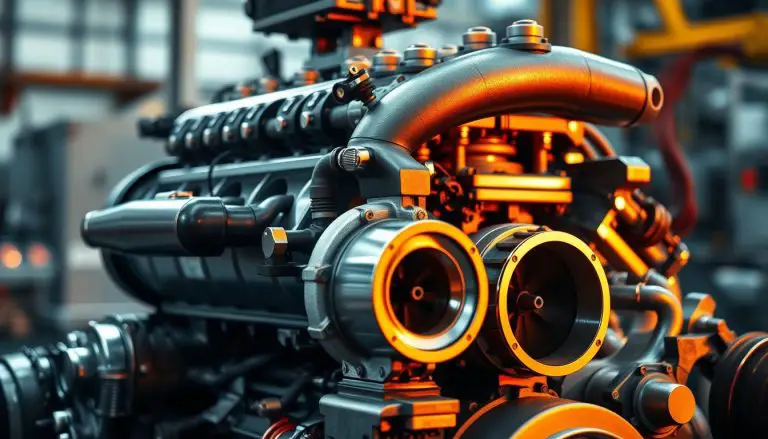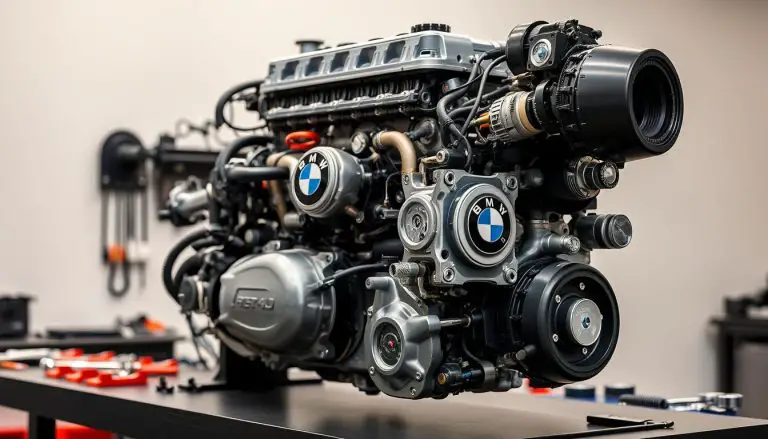The act of driving and maintaining a diesel car is pivotal in enhancing its performance and longevity. Diesel engines, renowned for their fuel efficiency and durability, necessitate specific care to operate optimally.
Adherence to the appropriate practices enables diesel car owners to partake in a more refined driving experience, diminish fuel consumption, and avert exorbitant repair costs. This discourse aims to elucidate the fundamental tips for driving and maintaining a diesel car, offering indispensable knowledge to car proprietors.
Key Takeaways
- Understand the importance of regular diesel engine maintenance.
- Learn the best practices for driving a diesel car.
- Discover how to improve fuel efficiency and reduce wear on your diesel engine.
- Find out how to prevent common issues associated with diesel cars.
- Gain insights into the benefits of proper diesel car maintenance.
Understanding Diesel Engines
In the ever-changing automotive realm, diesel engines stand out as a significant alternative to conventional gasoline engines. Renowned for their durability and efficiency, they have become a favored option for many in the United States. This preference underscores their importance in the modern vehicle landscape.

How Diesel Engines Differ from Gasoline Engines
The ignition systems of diesel and gasoline engines are fundamentally distinct. Diesel engines ignite fuel through compression, leveraging the heat produced during the compression stroke. In contrast, gasoline engines employ spark ignition. This disparity leads to diesel engines’ higher compression ratios, typically ranging from 18:1 to 22:1, enhancing both fuel efficiency and torque.
“Diesel engines are known for their ability to provide more torque at lower RPMs, making them ideal for hauling heavy loads and towing trailers.” This attribute is crucial for truck owners and commercial drivers, who require vehicles with robust performance capabilities.
Benefits of Diesel Vehicles in the American Market
Diesel vehicles are highly sought after in the American market due to their numerous benefits. Their superior fuel economy is a significant advantage, often achieving 20-40% better fuel efficiency than gasoline engines. This translates to substantial cost savings for drivers, notably those with high mileage. Further, diesel engines are renowned for their longevity, with many exceeding 500,000 miles with diligent maintenance.
Modern Diesel Technologies and Emissions Systems
Modern diesel engines have undergone significant advancements, incorporating cutting-edge technologies to reduce emissions and enhance performance. The Selective Catalytic Reduction (SCR) system, utilizing diesel exhaust fluid (DEF), is a key innovation for nitrogen oxide reduction. The Diesel Particulate Filter (DPF) is another critical component, designed to capture and remove particulate matter from exhaust gases. These systems collectively minimize the environmental footprint of diesel engines while preserving their efficiency and performance.
“The integration of these advanced technologies has enabled diesel engines to meet stringent emissions standards while continuing to deliver the power and efficiency that drivers expect.”
How to Drive and Maintain a Diesel Car Properly
To maximize the performance of your diesel vehicle, it is imperative to grasp the optimal driving and maintenance practices. Diesel cars, celebrated for their fuel efficiency and robustness, necessitate specialized care to enhance their performance and extend their lifespan.
Starting and Warming Up Your Diesel Engine
The initiation of a diesel engine diverges markedly from its gasoline counterpart. Diesel engines ignite fuel through compression, thus necessitating a pre-drive warm-up, more pronounced in colder climates. Modern diesel engines are equipped with glow plugs to facilitate cold starts, yet a few minutes of warm-up can mitigate engine wear.
Tip: Refrain from abrupt acceleration until the engine has reached optimal operating temperature to avert undue stress on the engine.
Optimal Driving Techniques for Fuel Efficiency
Adopting appropriate driving techniques is crucial for achieving peak fuel efficiency in diesel cars. Consistent speed, the utilization of cruise control on highways, and the avoidance of sudden accelerations are key to enhancing fuel economy. Equally important is ensuring the vehicle’s load is balanced and unnecessary weight is removed to augment fuel efficiency.
For additional driving tips aimed at prolonging engine longevity, refer to this resource: driving tips to prolong engine life.

Handling Turbo Diesel Vehicles Effectively
Turbo diesel vehicles, with their enhanced performance, demand specific handling protocols. It is critical to allow the turbocharger to cool down post-long drive before engine shutdown. Regular inspections for signs of wear and proper lubrication are imperative to avert premature turbocharger failure.
Winter Driving Considerations for Diesel Cars
Winter driving presents distinct challenges for diesel car owners. Utilizing winter diesel fuel, formulated to withstand colder temperatures, can prevent fuel line freezing. Keeping the fuel tank full is also advisable to prevent condensation, which can contaminate the fuel system.
Tip: Employing a block heater or winter-specific fuel additives can further augment your diesel car’s performance in frigid conditions.
Essential Maintenance for Diesel Vehicles
To ensure your diesel vehicle’s optimal performance, adherence to a meticulous maintenance regimen is imperative. Diesel engines, renowned for their robustness and fuel efficiency, necessitate specific care to uphold their operational efficacy and longevity. Regular upkeep not only guarantees a seamless driving experience but also averts the financial burden of future repairs.
Fuel System Maintenance and Preventing Contamination
The fuel system’s integrity is paramount to a diesel engine’s functionality. It mandates periodic inspections for contamination and confirmation of the fuel filter’s cleanliness and efficacy. Diesel fuel’s propensity for contamination by water and particulates can precipitate severe engine malfunctions if unaddressed.
Employment of premium-grade fuel and diligent maintenance of the fuel system significantly diminishes contamination risks. Periodic application of a fuel conditioner is advisable to eradicate water and enhance fuel quality.
Oil Changes and Lubrication Requirements
Consistent oil changes are indispensable for diesel engine health. Diesel engines demand oil that fulfills specific viscosity and performance criteria. This oil lubricates the engine’s components, mitigates wear, and aids in cooling. Adherence to the manufacturer’s oil change interval guidelines and utilization of oil meeting or exceeding these standards is paramount.
“Regular oil changes are one of the most important maintenance tasks for diesel engines. Using the right oil can significantly extend the life of the engine.”
Air, Fuel, and DPF Filter Replacement Schedules
Filters are instrumental in preserving diesel engine performance and efficiency. The air filter prevents ingress of dust and debris, while the fuel filter maintains fuel purity. The Diesel Particulate Filter (DPF) captures soot and exhaust particulates. Adherence to the manufacturer’s filter replacement schedules is critical for engine performance preservation and damage prevention.
| Filter Type | Replacement Interval | Importance |
|---|---|---|
| Air Filter | Every 15,000 miles | Prevents engine damage from dust |
| Fuel Filter | Every 10,000 miles | Ensures clean fuel for the engine |
| DPF Filter | Every 50,000 to 100,000 miles | Reduces emissions and prevents engine damage |
DEF System Management and Maintenance
For diesel vehicles equipped with Selective Catalytic Reduction (SCR) systems, Diesel Exhaust Fluid (DEF) is vital for emissions reduction. DEF system upkeep entails regular tank refilling and system functionality verification. Utilization of high-quality DEF conforming to the ISO 22241 standard is imperative.
For further insights into diesel engine maintenance, refer to this resource for additional guidance and tips.
Troubleshooting Common Diesel Engine Problems
Recognizing early warning signs is crucial in addressing common diesel engine issues. These engines, celebrated for their durability and efficiency, necessitate specific care and attention to sustain their performance. Familiarity with prevalent problems enables swift action, averting minor issues from escalating into significant repairs.
Warning Signs of Diesel Engine Issues
Identifying the warning signs of diesel engine issues is the initial step towards effective troubleshooting. These signs encompass unusual noises, decreased performance, and dashboard warning lights. Unusual noises such as knocking or clunking sounds signify serious internal engine malfunctions. A decline in performance, manifesting as reduced power or efficiency, can stem from various causes including clogged filters or faulty fuel injectors.
“The key to maintaining a healthy diesel engine is regular monitoring and maintenance,” asserts a leading diesel engine mechanic. “By vigilantly monitoring the engine’s performance and addressing issues promptly, many common problems can be circumvented.”
Dealing with Hard Starting and Poor Performance
Hard starting and poor performance are prevalent concerns among diesel engine owners. These issues can arise from a multitude of factors including bad glow plugs, clogged fuel filters, or low compression. Ensuring a clean fuel system and well-functioning glow plugs significantly enhances starting performance. Regular maintenance of the air filter is also vital for maintaining optimal engine performance.
Addressing Exhaust Smoke and Emission Problems
Exhaust smoke and emission problems are not only a nuisance but also indicative of underlying engine issues. Black smoke, for instance, often signifies incomplete combustion, typically resulting from a clogged air filter or faulty fuel injectors. White smoke, conversely, may indicate coolant leakage into the combustion chamber. Promptly addressing these issues is essential for preserving the engine’s health and minimizing environmental impact.
When to Seek Professional Diesel Mechanic Help
While many diesel engine problems can be diagnosed and resolved by the owner, there are instances where professional assistance is imperative. If a problem persists after basic troubleshooting or if you are uncertain about the next steps, consulting a professional diesel mechanic is advisable. They possess the necessary tools and expertise to accurately diagnose complex issues and execute the required repairs.
“A stitch in time saves nine.” Regular maintenance and prompt attention to issues can save diesel car owners from costly repairs down the line.
Conclusion
The imperative of adeptly navigating and preserving a diesel-powered automobile cannot be overstated, as it directly influences its operational efficacy, fuel consumption, and durability. Mastery over diesel engine functionality, coupled with the adoption of optimal driving methodologies, substantially augments vehicular performance.
Adherence to a regimen of routine maintenance, encompassing inspections of the fuel system, oil exchanges, and filter substitutions, is indispensable for sustaining vehicular functionality. Vigilance towards prevalent malfunctions and their expeditious resolution is crucial, as it mitigates the risk of incurring substantial repair expenditures and guarantees a secure vehicular experience.
Through the application of insights derived from this comprehensive guide, one can reap the advantages of diligent diesel vehicle maintenance, including enhanced fuel economy, diminished environmental impact, and prolonged engine longevity. Initiate the journey towards optimizing your diesel vehicle’s capabilities by integrating these recommendations into your routine.
FAQ
What are the benefits of diesel vehicles in the American market?
Diesel vehicles exhibit enhanced fuel efficiency, augmented torque, and extended engine longevity compared to their gasoline counterparts. These attributes render them an ideal choice for extensive journeys and the transportation of substantial loads.
How often should I change the oil in my diesel car?
The interval for oil changes in diesel cars is contingent upon several variables, including the type of oil employed, the driving environment, and the manufacturer’s guidelines. Typically, this interval spans from 5,000 to 7,500 miles.
What is the importance of DEF system management in diesel vehicles?
The Diesel Exhaust Fluid (DEF) system is indispensable for mitigating emissions in diesel-powered vehicles. Adequate management and upkeep of this system are imperative for adherence to emissions standards and to avert performance diminution.
How can I improve fuel efficiency while driving a diesel car?
To enhance fuel efficiency, it is advisable to maintain a steady velocity, eschew abrupt acceleration, and ensure optimal tire pressure. Regular maintenance, encompassing fuel filter replacements and oil changes, also significantly contributes to this goal.
What are the common problems associated with diesel engines, and how can I troubleshoot them?
Common afflictions include difficulties in starting, suboptimal performance, and emission-related issues. Troubleshooting entails vigilance for warning signs, thorough inspections of fuel and air filters, and, when necessary, professional intervention.
How do I handle turbo diesel vehicles effectively?
To effectively manage turbo diesel vehicles, it is crucial to avoid sudden acceleration, permit the engine to warm up before subjecting it to strenuous conditions, and adhere to the recommended maintenance regimen for the turbocharger.
What are the winter driving considerations for diesel cars?
In winter, the utilization of winter diesel fuel, the maintenance of proper tire pressure, and the consideration of employing block heaters or diesel fuel additives are advisable. These measures facilitate cold starting and preserve engine functionality.
What is the role of the DPF filter in diesel vehicles, and how often should it be replaced?
The Diesel Particulate Filter (DPF) serves to capture soot and other particulates, thus reducing emissions. The frequency of replacement hinges on driving conditions and manufacturer guidelines, generally ranging from 50,000 to 100,000 miles.
Can I use regular diesel fuel in my turbo diesel vehicle?
While regular diesel fuel may be compatible with turbo diesel vehicles, it is advisable to utilize high-quality diesel fuel that conforms to the manufacturer’s specifications. This ensures the preservation of engine performance and longevity.


